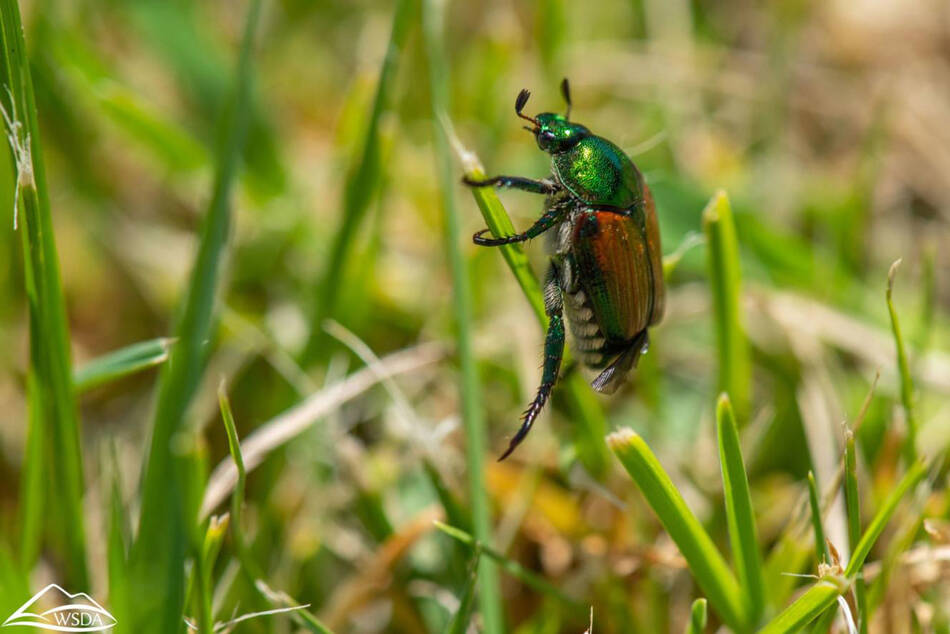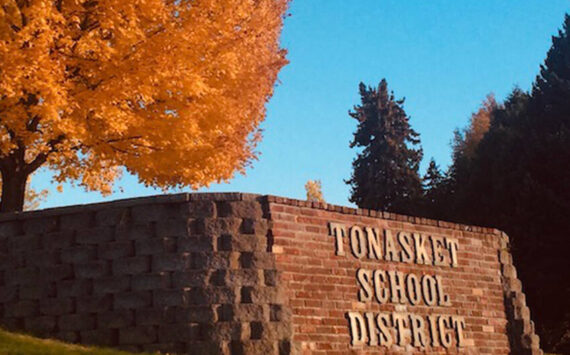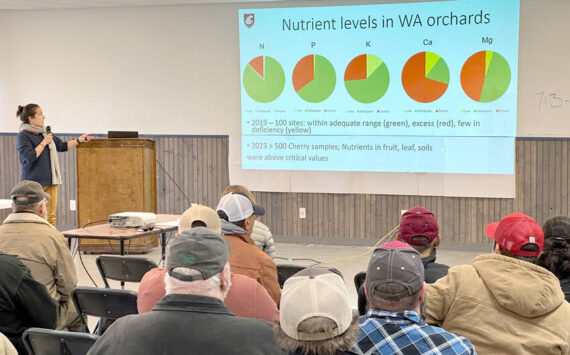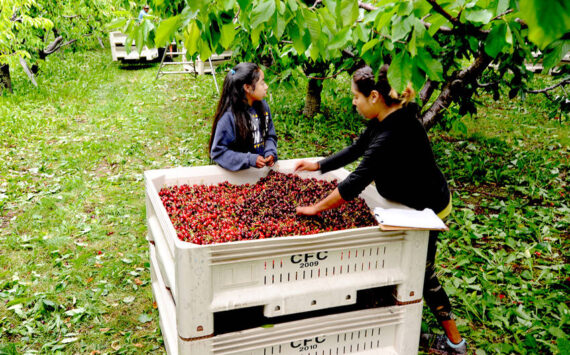by Mai Hoang, Crosscut News Service
YAKIMA – The Washington State Department of Agriculture has spotted the first adult Japanese beetle of this year in Yakima County on Tuesday.
The beetle, which is not established in Washington, can feed on 300 different plants, creating concern that it could negatively impact several of Washington’s top agricultural commodities, such as cherries and hops. It was first spotted in Sunnyside in 2020.
The Japanese beetle’s presence in the Central Washington county has grown since then. Tens of thousands of beetles have been spotted in Sunnyside, Grandview and Wapato, and the state has started a yard debris quarantine program along with other measures in a multiyear effort to eradicate these beetles.
Public engagement specialist Karla Salp wrote on the WSDA blog that the Department has set traps in areas near the high school in Grandview where the beetle was detected, in anticipation of thousands of additional beetles emerging there.
Salp also outlined several ways Yakima Valley residents can assist the agency in its capture and eradication effort, including reporting sightings online, installing traps on their property and allowing WSDA to spray on their property.
The Washington State Department of Agriculture recently completed a second round of pesticide treatment in the affected areas this spring.
Crosscut is a service of Cascade Public Media, a nonprofit, public media organization. Visit crosscut.com/membership to support independent journalism.








